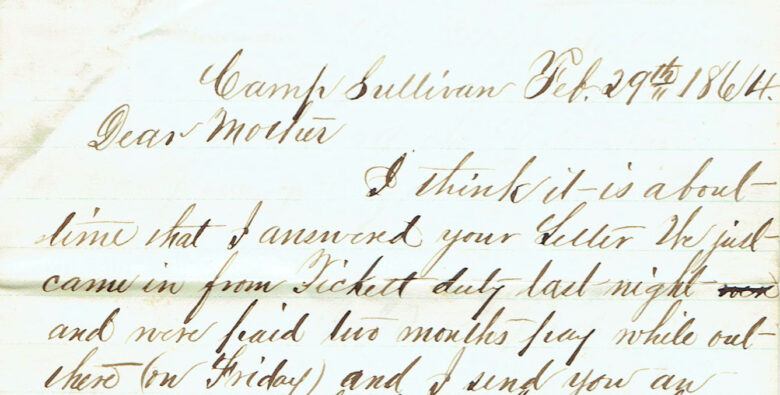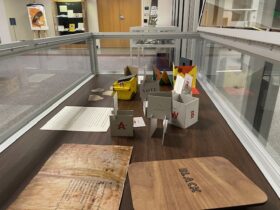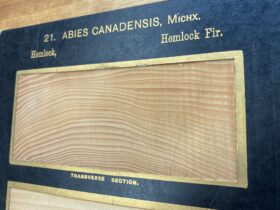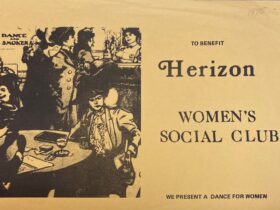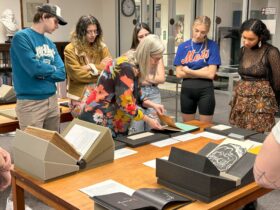The following was written by Maureen Folk, a graduate student assistant who has been working in Special Collections during the spring semester of 2020. She had been processing the archaeological field records of Professor William Isbell until employees at the university began working from home on March 17th in adherence to the New York State COVID-19 directive. Maureen is a second year master’s student studying Peruvian archaeology and paleoethnobotany. She received her bachelors in Archaeological Studies from SUNY Potsdam in 2016 and will graduate from Binghamton in May. She hopes to pursue a career working in museums with collections of all types.
Working in Special Collections can present a new challenge each day. The most recent challenge has been the shift to working from home. The archival project I had been working on couldn’t be done from home. Up until the stay-at-home orders mandated because of Covid-19, I would begin each day at work by bringing a cart of materials out from closed stacks. I would roll this cart to the workroom and open the word documents and spreadsheets where the information regarding all of this physical material was held. From there, my day was relatively straightforward. I would go through the items in the boxes and document what was inside so we could build a finding aid and the collection could be used for research. The contents of each box were unique, ensuring each day was different.
Today, as I open up my laptop at my desk at home, my work looks a bit different. Binghamton University’s Special Collections had been lucky to receive a recent gift of letters written by a Civil War soldier, Clark Lockwood, to his mother. Now, my workday consists of opening scans of these letters and reading through them to produce a transcription. Once they are edited and uploaded, researchers can utilize them in instances where they cannot read the original material or want to do keyword searches on them. With each letter I open, I have to make my window five times bigger and zoom in quite a bit — not because the script is small, but because it can be challenging to read. They are in cursive, and while I was part of the generation that still learned cursive in school, it’s not a simple task to read something written more than 150 years ago. Some words have unique spellings that we no longer use or were misspelled. For example, Lockwood wrote “now” instead of “know” and not recognizing this changes the meanings of the sentences.
Clark Lockwood was 18 when he enlisted on August 14th, 1863 in Elmira, New York. He was mustered in as a private to serve three years. He would write home to his mother, Jane Lockwood, but always wished his father and sisters well. Lockwood’s letters recount his time at different camps, his hope for more people to enlist, his desire for more tobacco, and how tight money could be. What we see in textbooks about war is not what we see in these letters. Having these letters as part of Special Collections is valuable because they give us a perspective of the everyday life of a soldier. These may not be the cinematic-worthy moments, but that does not mean they are unimportant. Because this resource is housed in an archive, it can be used. Researchers can come to Special Collections and sit down with these letters in an effort to better understand what daily life looked like for soldiers or they can study the use of words and how they’ve changed over time.
What struck me most about these letters was how relevant his writing felt. Lockwood wrote to his mother about money; he would send her money but still needed some in order to pay his debts to people around camp. He also wrote about Small Pox breaking out at camp and how it had infected a number of soldiers. While he wrote about these issues more than 150 years ago, many of his worries resonate with us today. As we navigate a pandemic in the modern world, I find comfort in knowing that the world Clark Lockwood lived in suffered extreme hardships as well, and that life continued after it.


